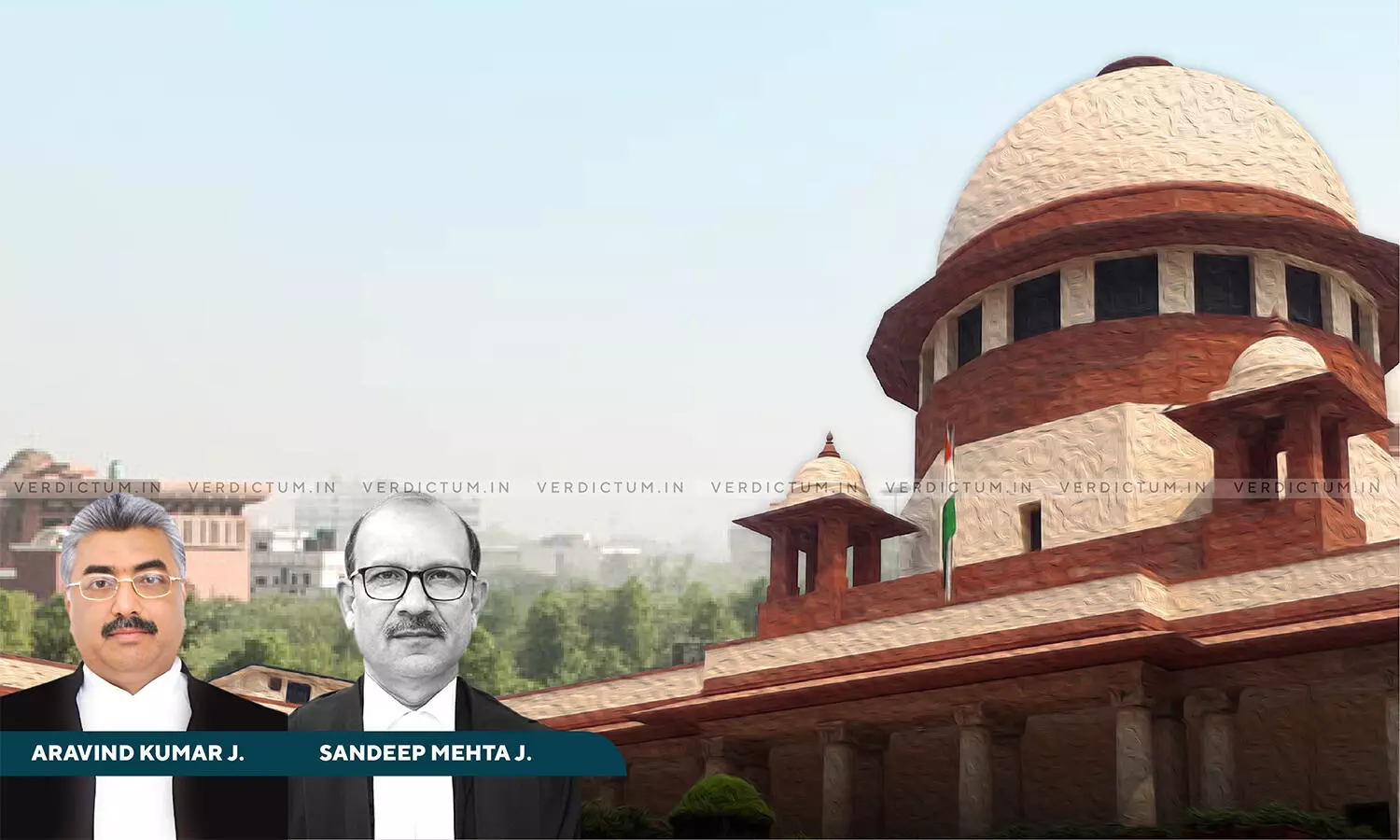
Delay Has To Be Condoned Irrespective Of Length Of Delay If There Is 'Sufficient Cause': Supreme Court
 |
|The Supreme Court observed that if the cause for delay falls within the definition of "sufficient cause," it should be condoned regardless of the length of the delay.
The Court was hearing an appeal challenging the Delhi High Court's Order which dismissed the Writ Petition, as well as the subsequent Review Petition. The High Court upheld the Central Administrative Tribunal's Order which dismissed the appellant's application for condonation of a 425-day delay in challenging the Order that imposed a penalty of stopping one increment with cumulative effect and held that the penalty imposed on the appellant was justified given the nature of charge.
The bench of Justice Aravind Kumar and Justice Sandeep Mehta observed, “It is not the length of delay that would be required to be considered while examining the plea for condonation of delay, it is the cause for delay which has been propounded will have to be examined. If the cause for delay would fall within the four corners of “sufficient cause”, irrespective of the length of delay same deserves to be condoned. However, if the cause shown is insufficient, irrespective of the period of delay, same would not be condoned.”
Brief Facts-
The appellant joined the Indian Statistical Services and was promoted through various ranks. He faced disciplinary action for alleged misconduct. The charge was based on a complaint by his wife who accused him of deserting his family, the complaint was withdrawn later. Despite the withdrawal of the complaint, he was dismissed. The Central Administrative Tribunal quashed this dismissal citing disproportionate punishment, and he was reinstated with a minor penalty. After his retirement, his appeals for promotions and complete exoneration were repeatedly rejected. A delay in filing an application led to its dismissal. The Delhi High Court upheld the decision of the tribunal that prompted the current appeal.
The Court mentioned its decision in Commissioner, Nagar Parishad, Bhilwara Vs. Labour Court, Bhilwara and Another reported in 2009 (3) SCC 525 where it had taken a view that while deciding an application for condonation of delay the High Court ought not to have gone into the merits of the case. The Court quoted, “While deciding an application for condonation of delay, it is well settled that the High Court ought not to have gone into the merits of the case and would have only seen whether sufficient cause had been shown by the appellant for condoning the delay in filing the appeal before it.”
The Court said that if negligence can be attributed to the appellant, then necessarily the delay which has not been condoned by the Tribunal and affirmed by the High Court deserves to be accepted. However, if no fault can be laid at the doors of the appellant and the cause shown is sufficient then according to the Court both the Tribunal and the High Court were in error in not adopting a liberal approach or justice-oriented approach to condone the delay, it added.
The Court said that the High Court has proceeded to confirm the order of the Tribunal on the footing that the penalty imposed on the appellant is only a minor penalty while completely ignoring the fact that in the earlier round of litigation, it had been held that punishment of dismissal imposed on the appellant was disproportionate to the alleged act.
Accordingly, the Court set aside the impugned orders and held that the appellant is entitled to all consequential benefits flowing from the setting aside of the orders of penalty.
Finally, the Court allowed the Appeal.
Cause Title: Mool Chandra v. Union of India (Neutral Citation: 2024 INSC 577)